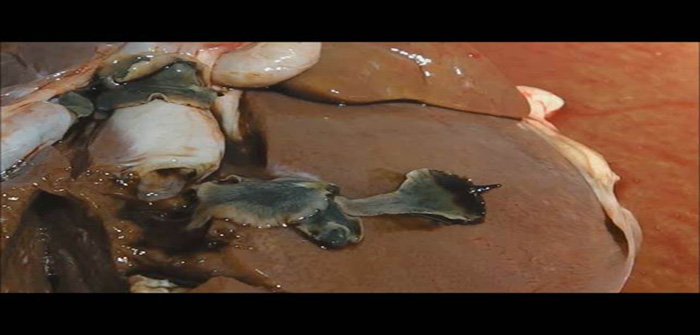NADIS predicts that both cattle and sheep farmers in parts of Scotland and North Wales are likely to face the greatest fluke challenge this autumn.
Merial Animal Health’s ruminant technical manager, Sioned Timothy, has urged farmers to review control measures as soon as possible.
The liver fluke’s intermediate fluke host, the mud snail, thrives in warm and wet conditions. This summer’s weather has provided the ideal environment for the liver fluke to complete its lifecycle, resulting in high numbers of the infective parasite on pasture in many areas of the UK.
Ms Timothy said: “Farmers in high risk areas should urgently review their farm’s control measures to prevent liver fluke disease this autumn. Using appropriate control measures and anthelmintic treatments is vital to mitigate the effect of the parasite on livestock health and productivity.”
In sheep, animals suffering from acute fluke disease caused by mass migration of immature flukes through the liver may simply be found dead, without showing prior signs of illness. It’s important, Ms Timothy said, to have all sudden deaths investigated to allow early intervention when an outbreak occurs.
“The risk of liver fluke disease can be managed through an effective anthelmintic strategy,” said Ms Timothy.
She recommended that sheep farmers in areas with a known liver fluke problem consult their veterinary surgeon or local animal health advisor about treating immature fluke in September.


